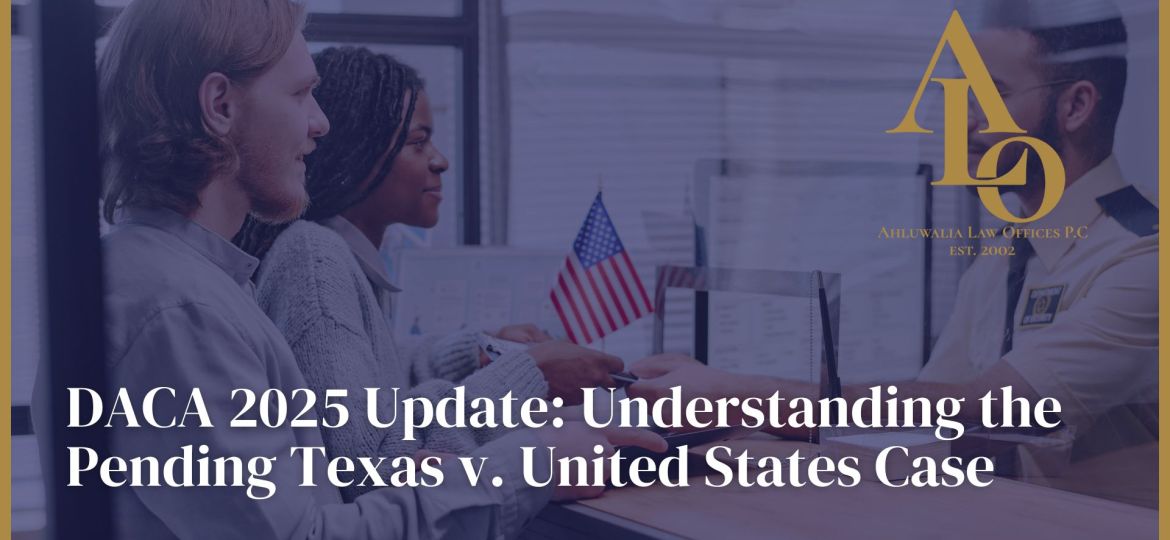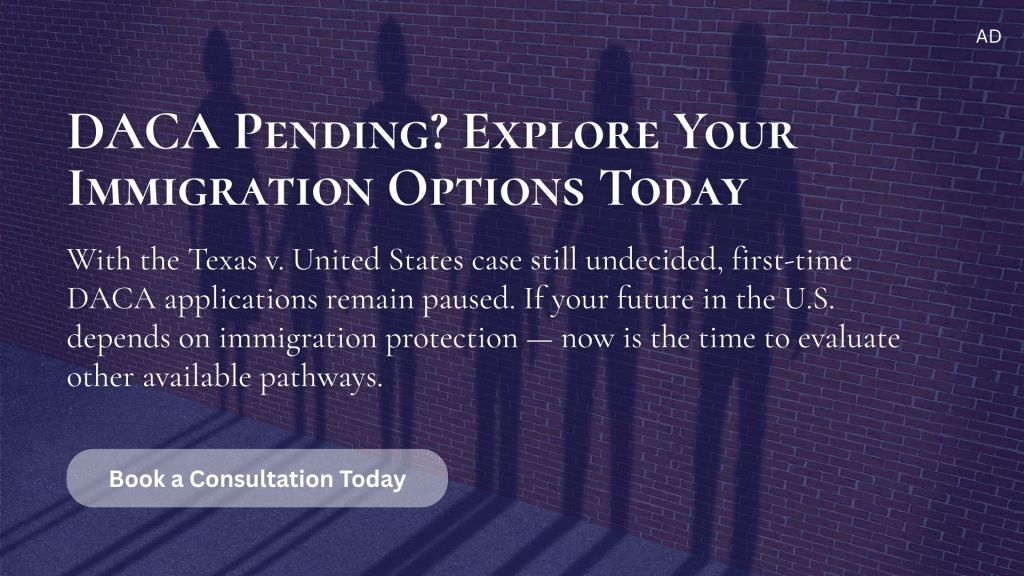
The Deferred Action for Childhood Arrivals (DACA) program remains one of the most closely watched immigration policies in the United States. As of October 2025, no ruling has been issued in Texas v. United States, 126 F.4th 392 (5th Cir. 2025), which continues to challenge the legality of DACA. The case is pending before the U.S. District Court for the Southern District of Texas, where Judge Andrew Hanen is expected to issue a decision once all briefing concludes.
Current USCIS Status
According to the U.S. Citizenship and Immigration Services (USCIS), the agency is not currently processing or adjudicating initial DACA applications. This means that individuals who have never received DACA before must wait for the court’s final determination before submitting a first-time request.
However, those who are already DACA recipients may continue to file renewal applications. Renewal applicants must:
- File between 120 and 150 days before their DACA expiration;
- Have continuously resided in the United States since June 15, 2007;
- Not have departed the United States on or after August 15, 2012, without advance permission; and
- Maintain a clean record with no felony or significant misdemeanor convictions.
Possible Outcomes if the Court Rules
The Department of Justice (DOJ) has outlined several potential outcomes if Judge Hanen allows USCIS to proceed under limited conditions:
- For applicants outside Texas: USCIS could begin adjudicating initial DACA applications and issue employment authorization (EADs).
- For applicants living in Texas: USCIS may grant deferred action but would not issue an EAD. Those applicants could receive an EAD if they later move out of Texas and update their address with USCIS.
- For renewals: USCIS would continue full adjudications nationwide, maintaining the current stay in effect.
Travel and Advance Parole
DACA recipients may still apply for permission to travel internationally (advance parole) for specific purposes such as education, professional development, or humanitarian reasons. However, even with authorization, international travel can be legally risky, and recipients should consult with a qualified immigration attorney before traveling.
Preparing for Future Filings
While the case remains undecided, individuals who may qualify for DACA once adjudications resume can begin preparing by:
- Gathering proof of continuous residence since June 15, 2007;
- Obtaining educational and employment records;
- Ensuring all contact information with USCIS is current; and
- Consulting a trusted immigration attorney to assess readiness and legal risks.
Key Takeaway
For now, DACA remains active only for renewals. No new initial filings are being processed by USCIS until a ruling is issued in Texas v. United States. Those affected are encouraged to stay informed and ensure all renewal applications are timely filed.


